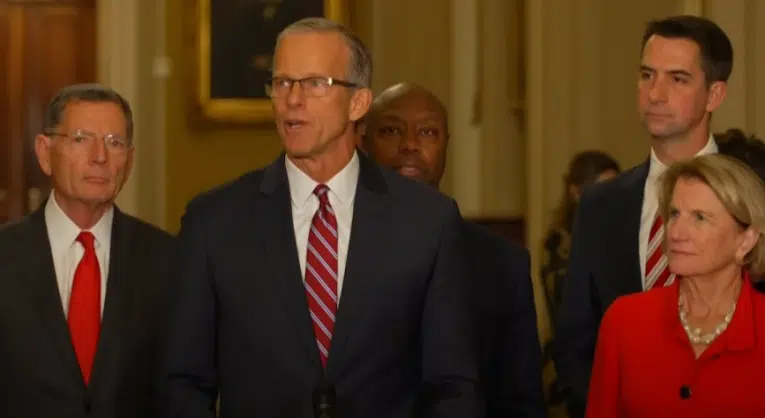
Consumer inflation in the U.S. ticked up another 0.3 percent in November at an annual rate of 2.7 percent, according to the latest data compiled by the Bureau of Labor Statistics. For most Americans who have seen inflation outpace their incomes for four years now as production fell behind demand after Covid and the federal government printed trillions of dollars, the results are undoubtedly frustrating.
But it could be worse. Just look at Argentina, where monthly inflation has dropped from a monthly rate of 25 percent in Jan. 2024 and an annual rate of 300 percent as recently as April, now down to 2.8 percent monthly and 200 percent annual, with the annual rate set to dip to 100 percent.
That’s a dramatic improvement under the tenure of Argentinian President Javier Milei, led by big spending cuts, strong currency policies and high interest rates (although those are coming down too), but it’s not without its side effects, as unemployment has increased from 5.7 percent last year to now 7.6 percent. That’s a recession.
Similar patterns played out in the U.S. following high bouts of inflation in the 1970s and 1980s, with separate recessions in 1974, 1980 and 1981-1982, always with the same pattern. Inflation would overheat the economy and then as demand cooled, unemployment would rise and prices would cool off.

In general, recessions are the most proven way to curtail high bouts of inflation, but they also come with their own problems politically when they are prolonged. It takes a lot of will, as Ronald Reagan and Paul Volcker had, to raise interest rates to double digits and keep them there until all the inflation was wrung out. By Dec. 1982, the unemployment rate was up to 10.8 percent as Republicans lost seats in the Congressional midterms.
But it worked, peak inflation at 14.6 percent in May 1980 was all the way down to 2.3 percent by July 1983, and unemployment began falling. By Nov. 1984, unemployment was down to 7.2 percent. Things were getting noticeably better and Reagan easily won reelection and retained the GOP Senate for another two years. By the time Reagan left office in Jan. 1989, unemployment was down to 5.4 percent.
Politically, it was best to get started right away. Killing inflation is painful.
In the most recent episode in the U.S. inflation peaked at an annual rate of 9.1 percent in June 2022 and has since slowed down to its current 2.7 percent rate, but not before unemployment has risen since its 5.7 million low in Dec. 2022 by 1.4 million to now 7.1 million in Nov. 2024. For Joe Biden and Kamala Harris, the slowdown of inflation came too late in their term of office, and incomes had not yet caught up, to make a difference politically.
In 2021, the problem we had were production shortfalls from the Covid lockdowns. Not enough was done to boost energy and agriculture production and in the meantime, we printed an extra almost $3 trillion with more spending bills in 2021 after printing $4 trillion the year before for Covid, plus interest rates were left at near-zero percent even as the inflation was ratcheting up. Production was not consciously increased to meet increasing demand and higher prices until after Russia invaded Ukraine in Feb. 2022, but by then consumer inflation had already reached 7.5 percent. These were consequential delays that weakened Biden’s economic message and led to his departure from the campaign trail.
All of which lays out an important lesson for the incoming President-elect Donald Trump. The goal should be to slay the inflation as quickly as possible — mindful that doing so will be painful. Ultimately, boosting production, curtailing spending and a stronger dollar can help that along, but Trump will need to prepared for that means on the downside to be sustained politically. Stay tuned.
Robert Romano is the Vice President of Public Policy at Americans for Limited Government Foundation.






